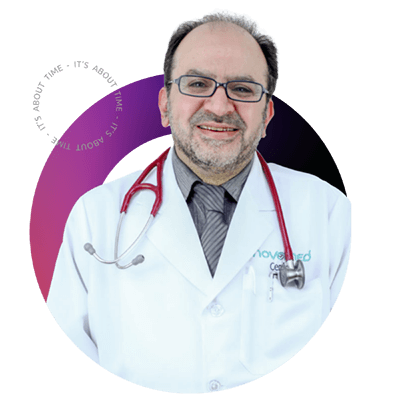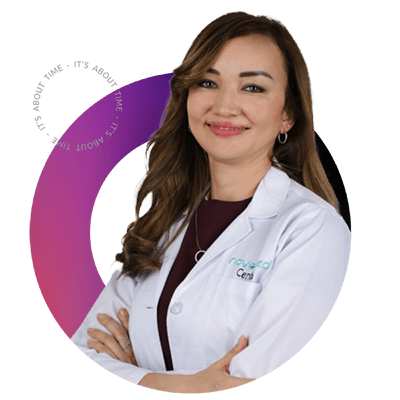Overview
Cushing’s syndrome, also known as hypercortisolism, is a rare hormonal condition that develops when your body produces high cortisol levels for an extended period. Cortisol is produced by the adrenal glands and helps your body regulate blood pressure and blood sugar.
Cushing syndrome can happen due to various factors, such as taking oral corticosteroids or certain types of tumors. It can affect anyone at any age but is most common in adults, especially women. Treatment can help manage your cortisol levels and relieve symptoms.
What are the symptoms of Cushing’s syndrome?
Common symptoms of Cushing syndrome include:
- Round face and thin arms and legs
- Accumulating fatty tissue between the shoulders
- Thin skin with bruises and purple stretch marks
- Fatigue and weak muscles
- Depression, anxiety, and irritability
What are the causes of Cushing’s syndrome?
- Corticosteroid medications: Taking high dosages of oral or injectable corticosteroids over a long period is the most common cause of Cushing’s syndrome. This medication is used to treat inflammatory illnesses (such as rheumatoid arthritis and asthma) or joint pain, and keep a transplanted organ from being rejected by your body.
- Your body’s own excessive cortisol production: Your body may produce too much cortisol or adrenocorticotropic hormone (ACTH), which regulates cortisol production and causes Cushing’s syndrome. Excess cortisol production can be caused by pituitary tumors, ectopic ACTH-producing tumors, and adrenal tumors.
How is Cushing’s syndrome treated?
Our doctor will choose the appropriate treatment depending on the cause of your condition. Treatment options include:
- Lower dose of medication: If you have too much cortisol due to steroid medications, our doctor will recommend gradually reducing your dosage while still managing the underlying condition.
- Removal of pituitary tumors: If your condition is caused by a tumor, our doctor will recommend that you have it surgically removed. You will need to take cortisol medication after the procedure to ensure that your body gets the right amount of cortisol for at least 6 months.
- Radiation therapy: If the tumor cannot be entirely removed, you may need radiotherapy to deliver significant radiation to the tumor.
- Cortisol-controlling medication: When surgery and radiation do not work, cortisol-controlling medications may be an alternative.
- Bilateral adrenalectomy: For ectopic ACTH-producing tumors or adrenal tumors, our doctor may suggest to have your adrenal glands surgically removed to eliminate excess cortisol production. However, you will need to take lifelong cortisol replacement drugs for the rest of your life.
Schedule your appointment at Novomed today!
To book an appointment with one of our expert endocrinologist in Dubai and Al Ain, call us toll free on 8006686 or click the live chat icon at the bottom of the screen.



























